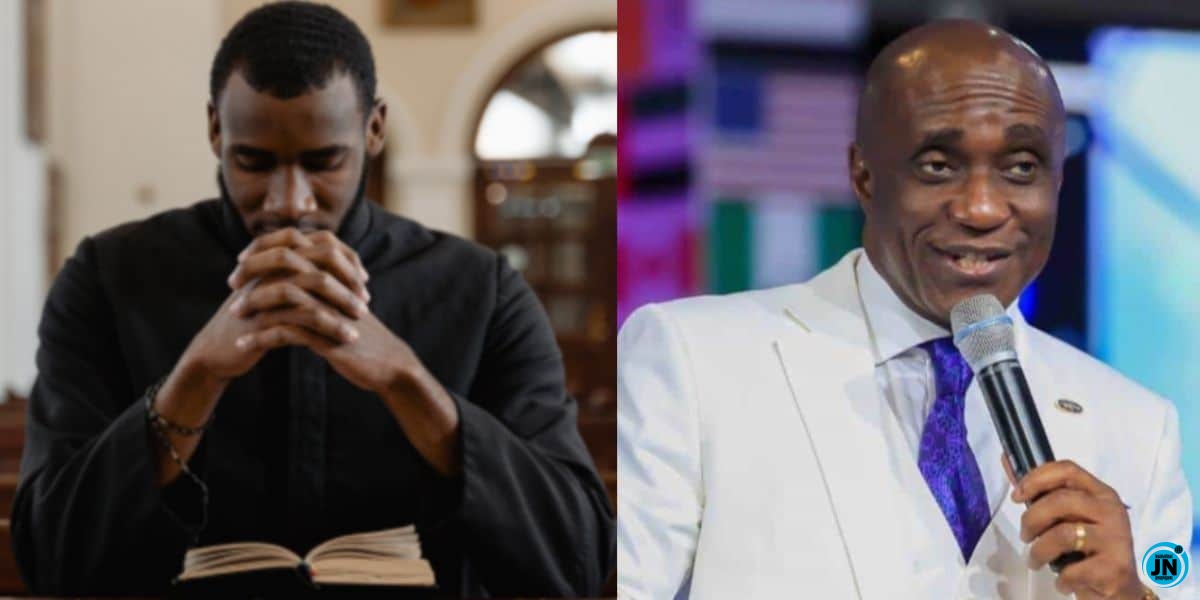
A Nigerian man, Chidiebere, has shared a personal experience that left him deeply disillusioned with a church service led by Pastor Ibiyeomie in Port Harcourt, explaining why he ultimately decided to stop attending the church altogether.
Chidiebere recounted that his disenchantment began during a Sunday service following a civic protest held in the city. He had participated in the protest, which aimed at advocating for a better Nigeria, and expected his engagement to be seen as a positive act of civic responsibility. However, the pastor’s comments during the sermon caused him to question the alignment between his faith and the church environment.
Taking to X (formerly Twitter), Chidiebere detailed what transpired. He explained that during the sermon, Pastor Ibiyeomie made remarks about people gathered in the name of the protest, implying a judgmental perspective towards those involved. Feeling personally targeted and morally uncomfortable, Chidiebere said he stood up and left the service, making the decision to never return.
He wrote: “The last time there was a protest for a better Nigeria, we convened on Saturday at PPK, Port Harcourt. On Sunday, I went to church. Pastor Ibiyeomie said, ‘While on evangelism, he saw poor people gathered in the name of protest.’ I stood up, left, and never returned. I am not a mad man.”
Chidiebere explained that the pastor’s remarks made him feel unfairly judged for participating in a civic movement aimed at improving societal conditions. He reflected on the tension between following his faith and standing by his convictions as a citizen, noting that the sermon left him feeling alienated and criticized for his activism.
The incident has sparked conversations online, with many sympathizing with Chidiebere’s position and recognizing the difficult balance between religious observance and social responsibility. His narrative resonated with people who have experienced similar conflicts between institutional religion and personal values, highlighting the importance of self-respect and critical thinking in matters of faith.
Chidiebere further emphasized that prioritizing one’s principles and sense of justice is more important than remaining in an environment that induces shame or judgment. His decision to leave the church, while personal, underscores the broader conversation about the role of religious leaders in shaping societal attitudes and the impact of their words on congregants’ engagement with both faith and civic life.
He concluded that standing firm in one’s beliefs, even when it means leaving a familiar religious setting, is essential to maintaining personal integrity and moral clarity. The story has since garnered attention for its candid reflection on the sometimes challenging intersection of faith, activism, and community expectations.
Watch video below…
Found it! Sunday Aug 4th. 3rd service https://t.co/DF0m1fQxuf pic.twitter.com/TgNNJ4ZAW2
— chidiebere (@carpenters_son) November 10, 2025